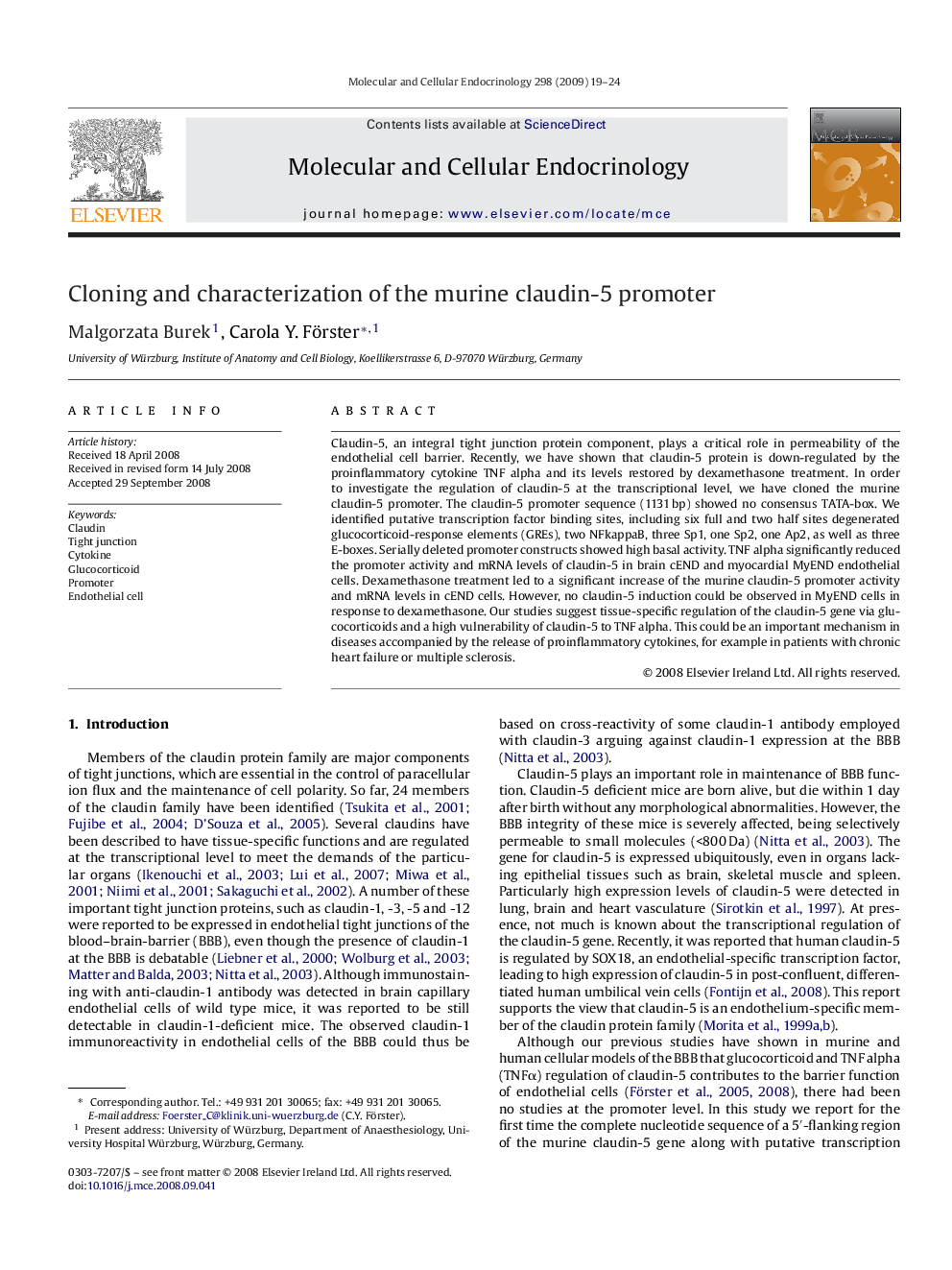| کد مقاله | کد نشریه | سال انتشار | مقاله انگلیسی | نسخه تمام متن |
|---|---|---|---|---|
| 2197556 | 1550963 | 2009 | 6 صفحه PDF | دانلود رایگان |

Claudin-5, an integral tight junction protein component, plays a critical role in permeability of the endothelial cell barrier. Recently, we have shown that claudin-5 protein is down-regulated by the proinflammatory cytokine TNF alpha and its levels restored by dexamethasone treatment. In order to investigate the regulation of claudin-5 at the transcriptional level, we have cloned the murine claudin-5 promoter. The claudin-5 promoter sequence (1131 bp) showed no consensus TATA-box. We identified putative transcription factor binding sites, including six full and two half sites degenerated glucocorticoid-response elements (GREs), two NFkappaB, three Sp1, one Sp2, one Ap2, as well as three E-boxes. Serially deleted promoter constructs showed high basal activity. TNF alpha significantly reduced the promoter activity and mRNA levels of claudin-5 in brain cEND and myocardial MyEND endothelial cells. Dexamethasone treatment led to a significant increase of the murine claudin-5 promoter activity and mRNA levels in cEND cells. However, no claudin-5 induction could be observed in MyEND cells in response to dexamethasone. Our studies suggest tissue-specific regulation of the claudin-5 gene via glucocorticoids and a high vulnerability of claudin-5 to TNF alpha. This could be an important mechanism in diseases accompanied by the release of proinflammatory cytokines, for example in patients with chronic heart failure or multiple sclerosis.
Journal: Molecular and Cellular Endocrinology - Volume 298, Issues 1–2, 27 January 2009, Pages 19–24